Lebanese Anise Cookies
Published Mar 30, 2024
This Lebanese Anise Cookies recipe is a Middle Eastern spiced cookie traditionally made during Eid al-Fitr and Easter, also called Ka'ak il Eid.
This post may contain affiliate links. Please read our disclosure policy.
Growing up in a Lebanese household, Anise cookies were a regular cookie in our rotation. We ate a lot of ghraybeh shortbread cookies, date and nut stuffed maamoul cookies and these Lebanese anise cookies, also called yansoon cookies, or Ka’ak il Eid (holiday cookies). I would compare these anise cookies to a biscotti cookie because they have that hard and crunchy texture on the outside but they are a little softer on the inside.
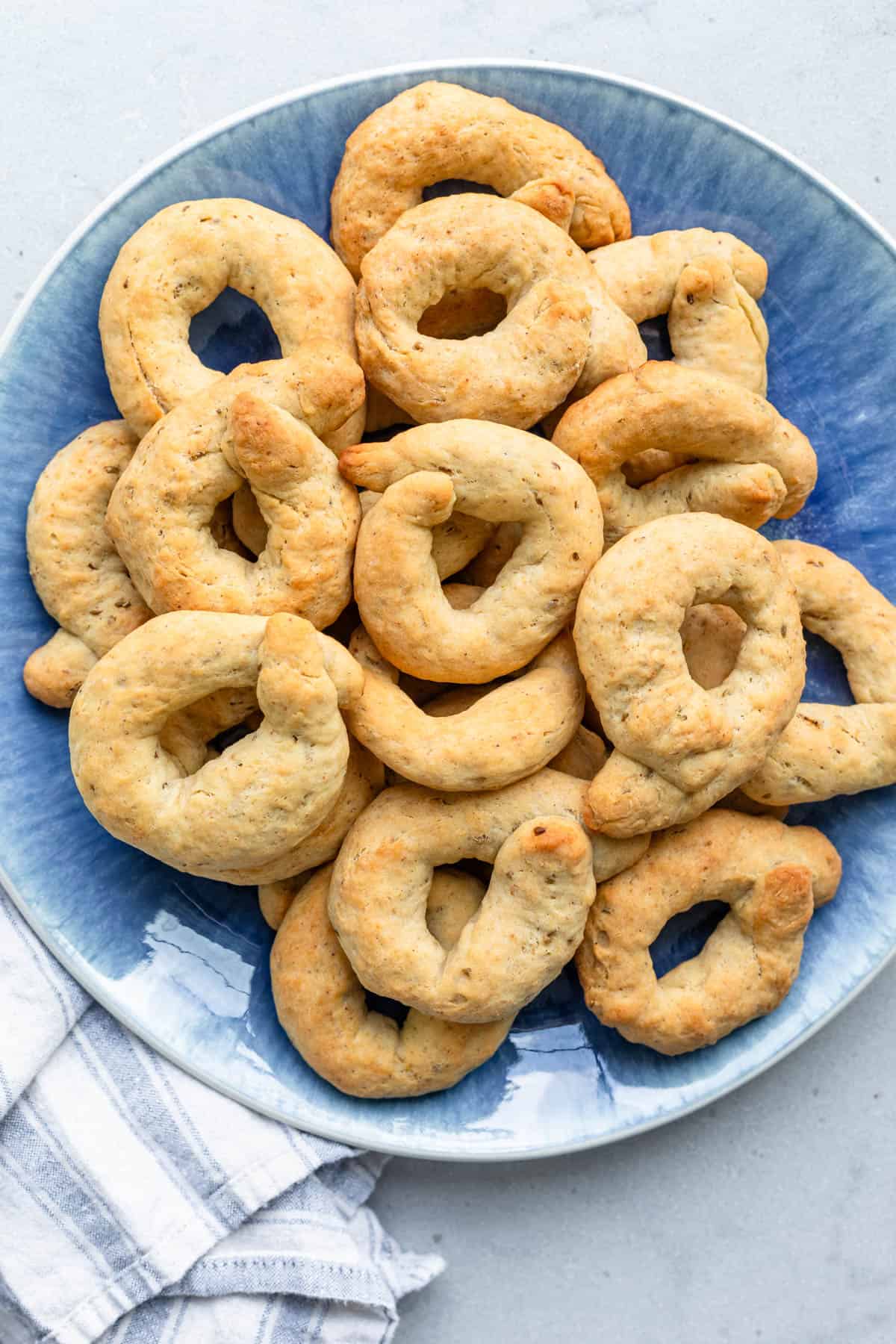
Jump to Section
Recipe At a Glance
Cuisine Inspiration: Lebanese
Primary Cooking Method: Oven
Dietary Info: Vegetarian
Key Flavor: Spiced and buttery
Skill Level: Moderate
Summary
- Try something different: If you want a new twist on cookies, this ka’ak il eid recipe is different from traditional cookies. Anise seeds and ka’ak spice blend create a delicious combination of sweet and savory notes, and the ring shape makes it fun to eat.
- Made with simple ingredients: Though these Lebanese sweet ka’ak cookies are packed with flavor, they are actually made with very simple ingredients. I also offer a suggestion to swap out the ka’ak spice blend just in case you have any trouble finding it in stores.
- Lebanese experience: Making a batch of Lebanese anise cookies gives you a unique opportunity to enjoy Middle Eastern traditions, from forming the dough into rings to dipping it into a cup of your favorite tea.
Ingredients to Make Lebanese Anise Cookies
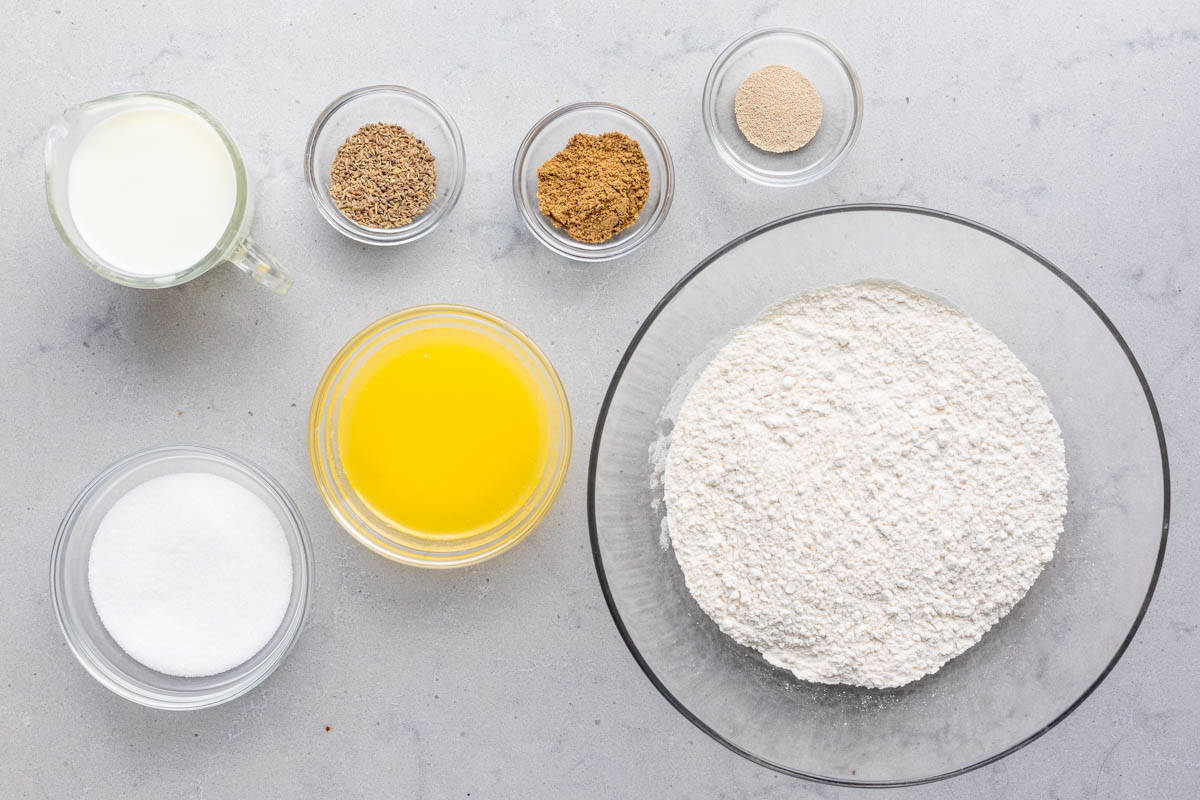
- All-purpose flour: Provides structure to the dough and gives the ka’ak cookies their characteristic texture.
- Milk: Adds moisture and richness to the cookie dough. The warm milk in this recipe is also used to activate the yeast and help the dough rise.
- Granulated sugar: Sugar sweetens the cookies and helps them develop a slightly golden brown color during baking.
- Anise seed: Also called yansoon, dried anise seeds add a unique taste to the cookies, giving them a distinct licorice-like flavor and aroma.
- Ka’ak spice blend: This is a blend of spices commonly used in Middle Eastern cuisine. It adds a unique taste and subtle fragrant scent. If you have trouble finding this spice blend in your local Middle Eastern grocery store, see below for a quick homemade blend.
- Yeast: Used as a leavening agent to help the dough rise and create a light and airy texture in the cookies.
- Unsalted butter: Adds richness and flavor to the cookies. Melted butter also helps to moisten the dough, resulting in a softer and more tender cookie texture.
- Salt: Enhances the flavor of the other ingredients and balances the sweetness of the cookies.
Popular Substitutions & Additions
- Fennel seeds: If you don’t have anise seeds, you can substitute them with fennel seeds, which have a similar licorice-like flavor.
- Use any yeast: Instant dry yeast is best, but active dry yeast will work too. Just make sure to activate it in warm milk first.
- Add-ins: Consider adding chopped dried fruits like raisins or dates to add sweetness and chewiness. Or fold in toasted and chopped nuts like almonds, pistachios, or walnuts for some crunch.
- Sesame seeds: Sprinkle sesame seeds on top of the cookies before baking for an extra layer of flavor and a visually appealing finish.
- Homemade ka’ak spice blend: Combine 1 teaspoon ground anise, ½ teaspoon of each: ground cinnamon, ground cloves, ground fennel, and ¼ teaspoon of ground mahlab and ground nutmeg. If mahlab is not available, add 1 teaspoon of almond extract into the batter with the wet ingredients.
How to Make Lebanese Anise Cookies
These anise sugar cookies may look intimidating, but they actually come together in no time. Whisk the dry ingredients first, then add all the wet ingredients. Rest, shape, and bake.
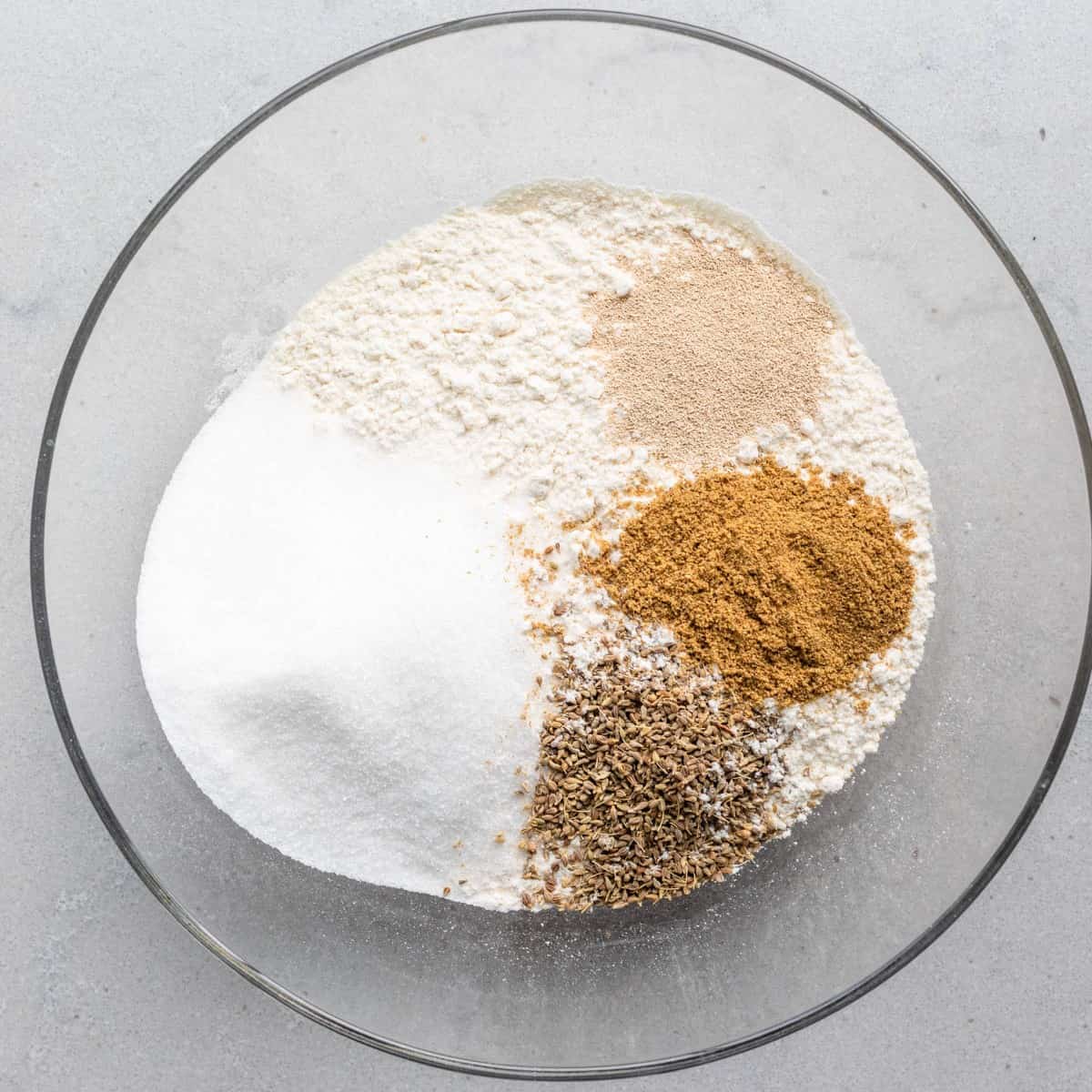
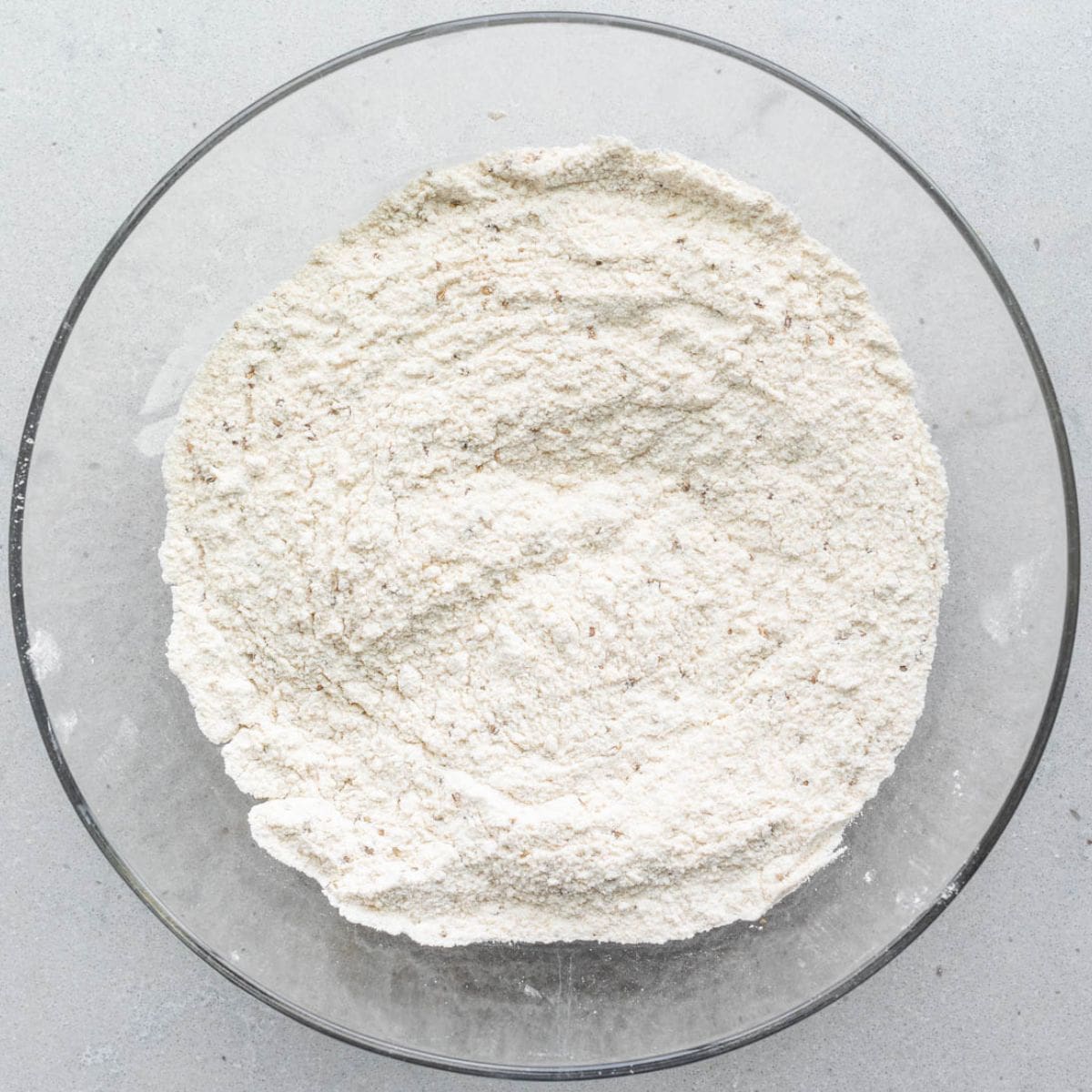
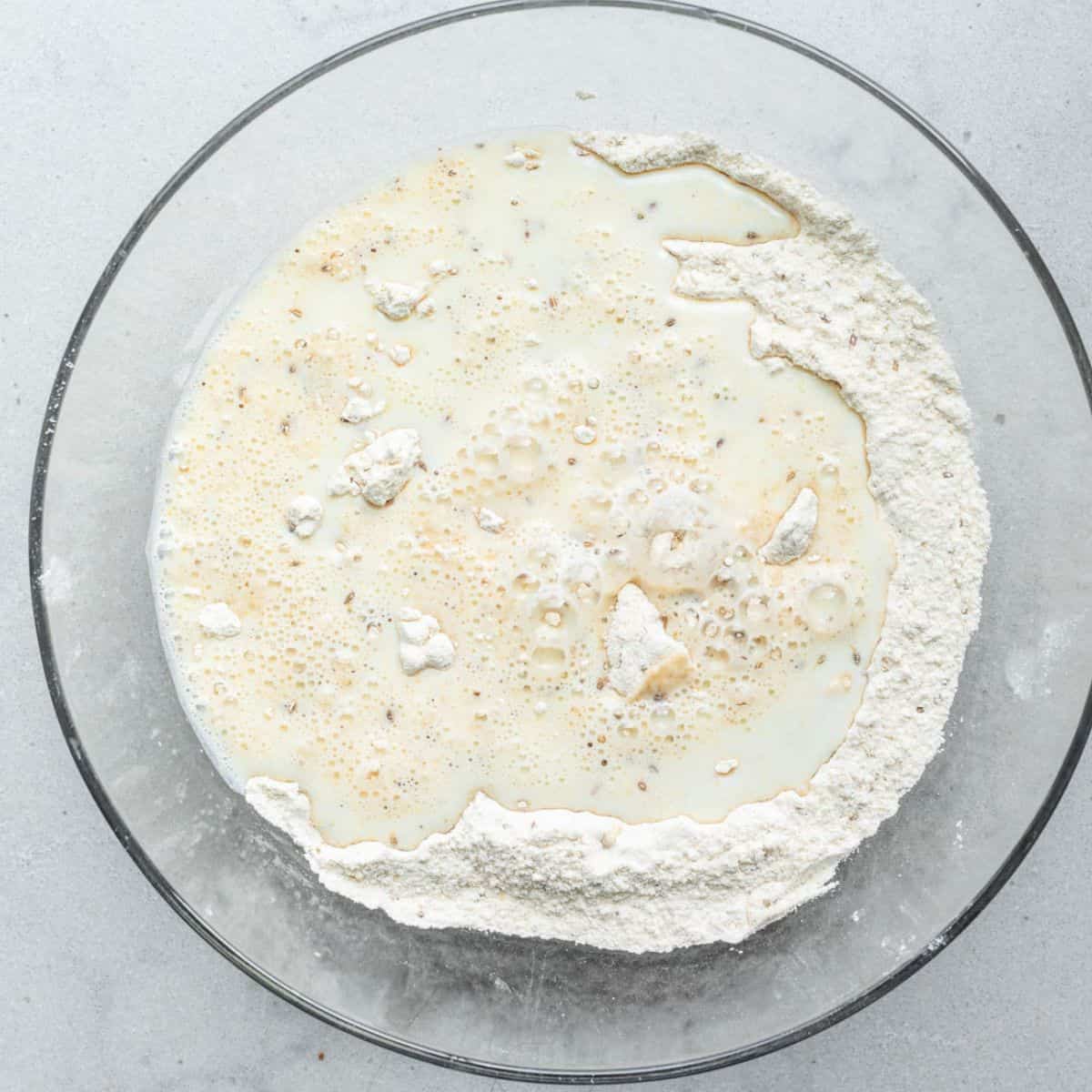
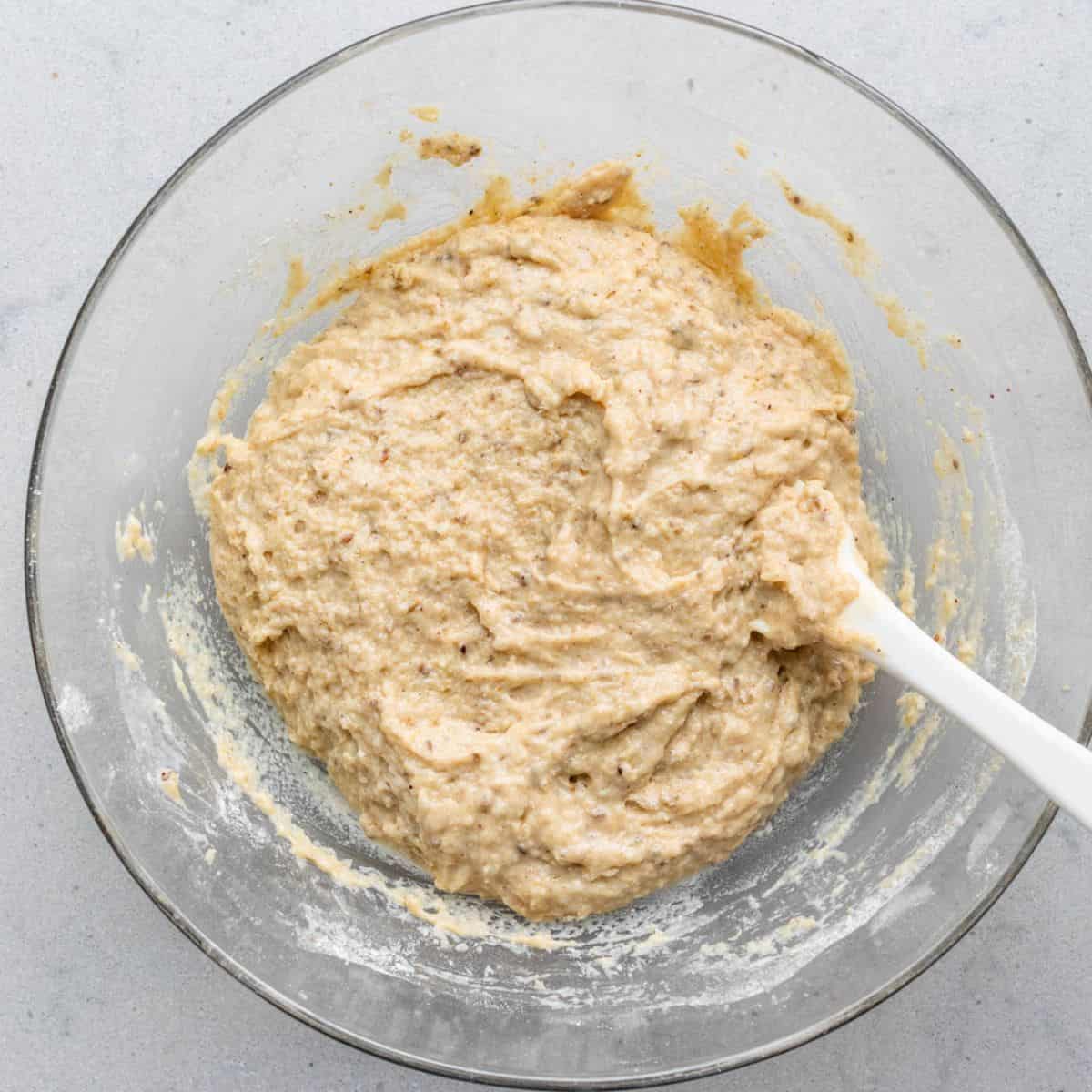
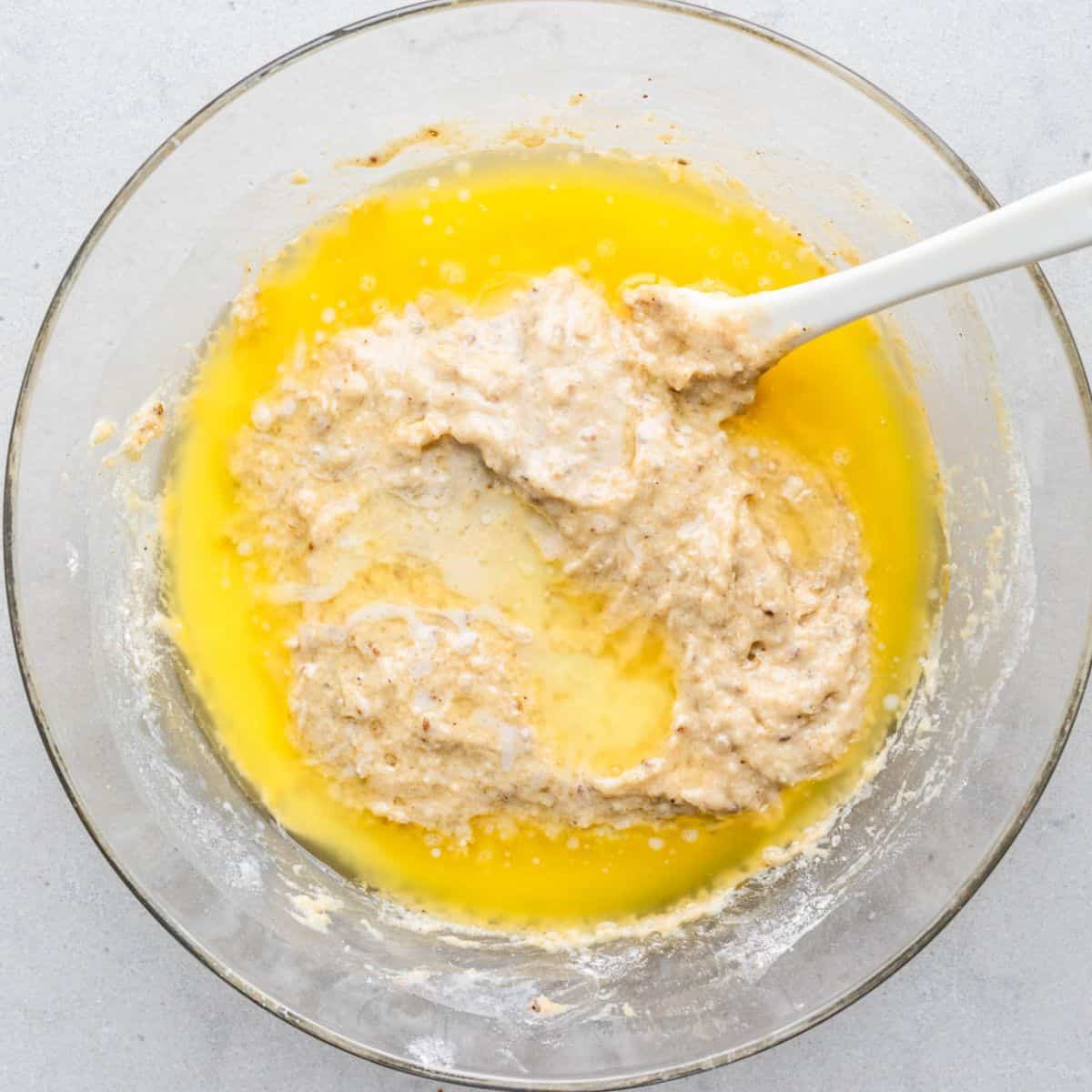
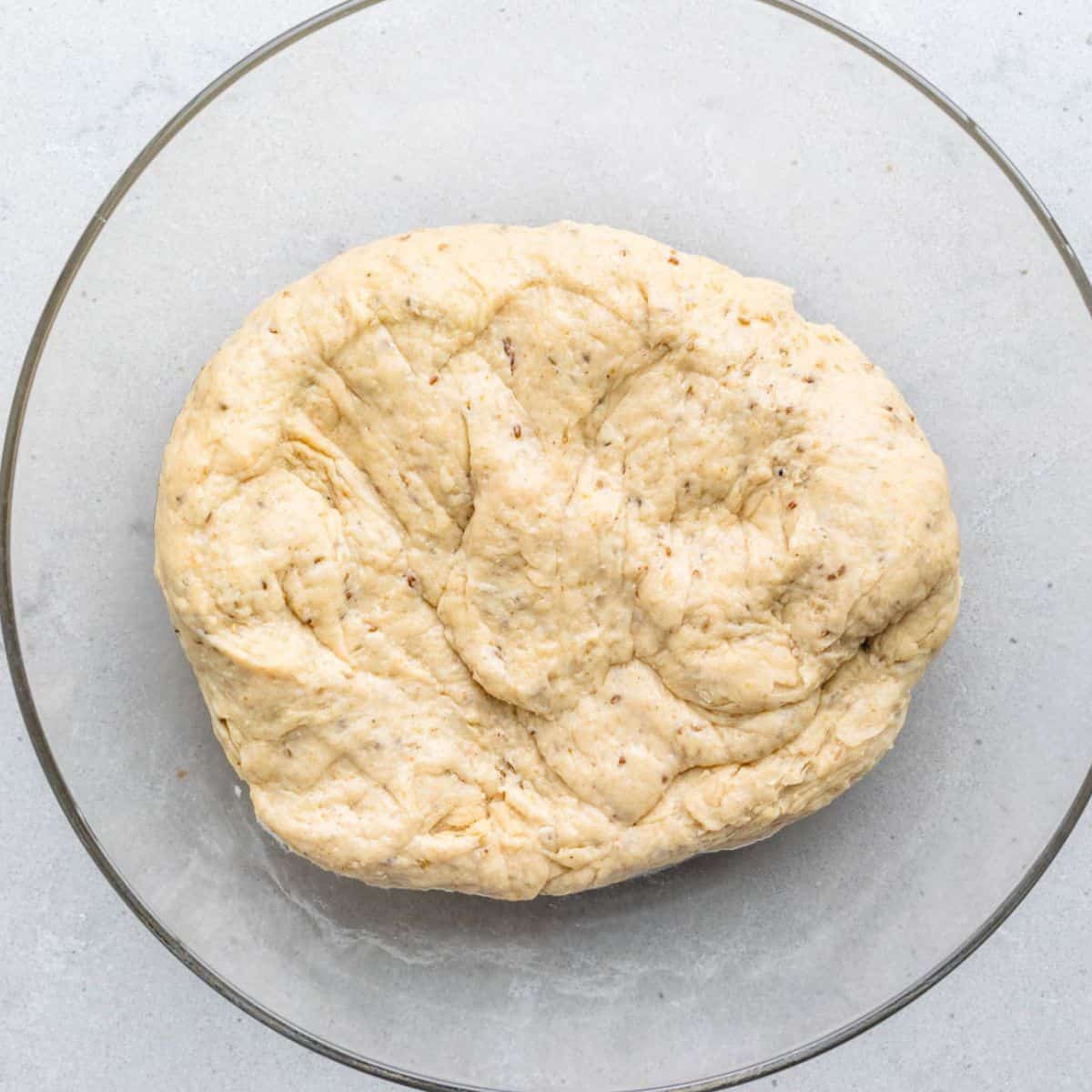
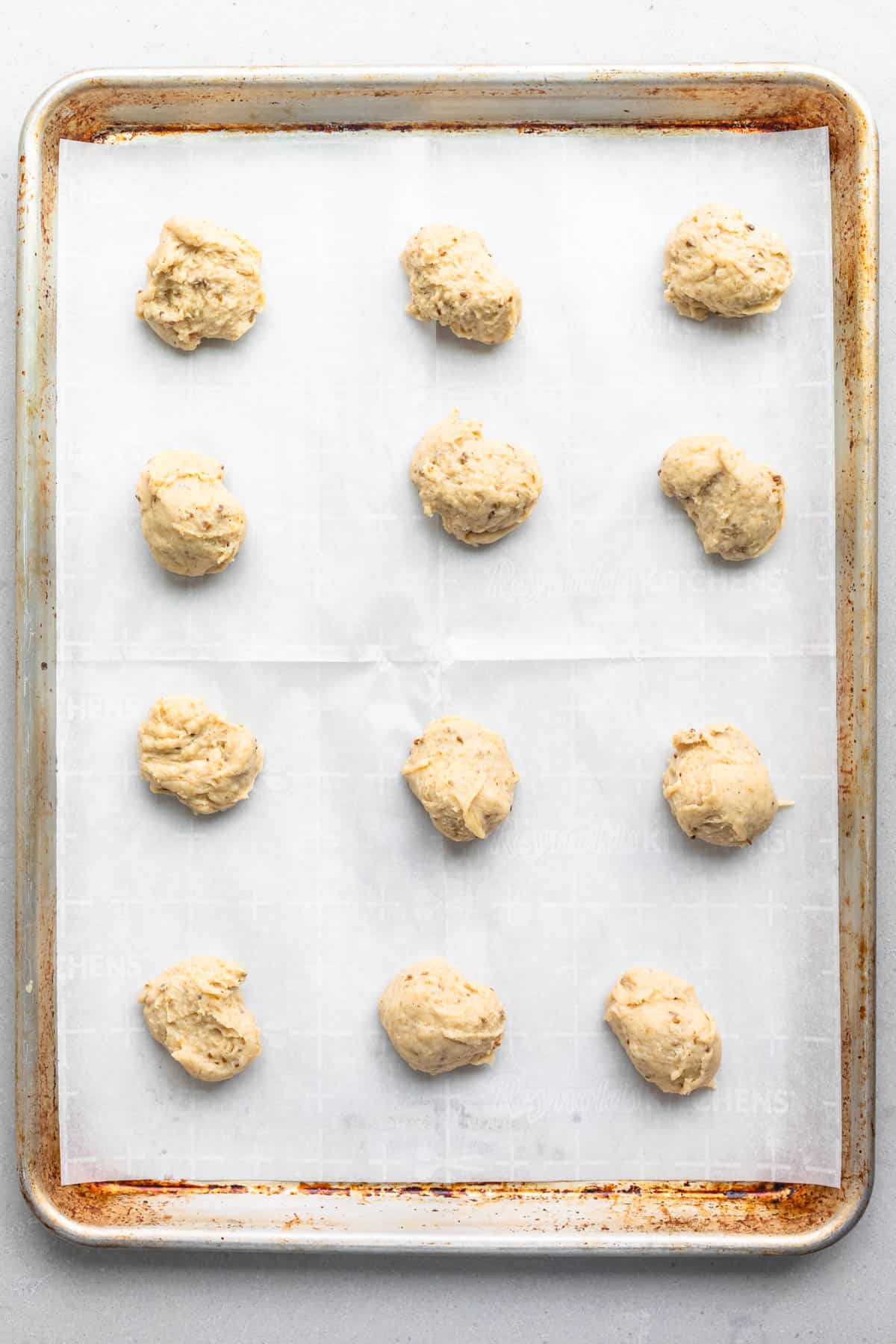
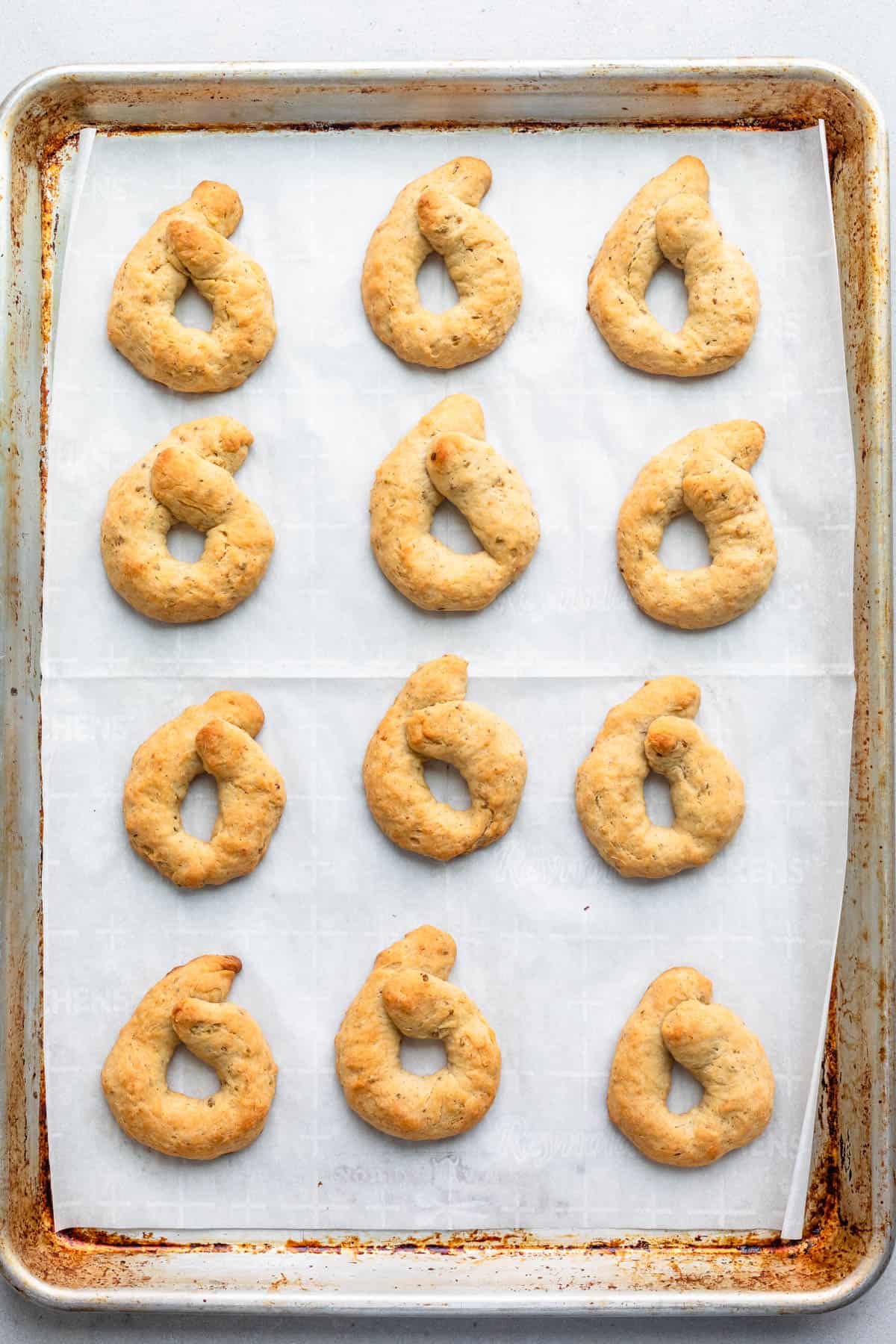
Tips for Making the Best Anise Cookies
- Measure evenly. Cookies look best when they are uniform in shape and size. Portioning out cookies using a cookie scoop or tablespoon helps achieve this.
- Chill the dough. Chilled dough makes shaping cookies easier. After the initial rise and when you’ve portioned out the cookie dough, cover them with plastic wrap and pop them into the fridge to chill for a few minutes. It’ll make forming them into rings easier.
- Use fresh ingredients. Check the expiration dates on your spices and make sure your yeast is fresh and active.
- Cool completely. Allow the cookies to cool completely on wire racks before serving or storing them to help them retain their crispiness.
How to Store Lebanese Anise Cookies
Store the anise sugar cookies in an airtight container at room temperature in a dark place away from direct sunlight for up to 1 week.
How Long Will Lebanese Anise Cookies Last in the Fridge?
Because these Lebanese sweet ka’ak cookies are dry and shelf-stable, there is no need to refrigerate them. In fact, refrigeration may cause them to absorb moisture and become stale faster.
Can I Freeze Ka’ak il Eid?
Yes! To prolong the shelf life of ka’ak el abbas, you can freeze them. Place them into a freezer-safe zip-top bag, removing as much air as possible to avoid freezer burn and freeze for up to 3 months. Thaw overnight at room temperature when ready to enjoy again.
Frequently Asked Questions
Middle Eastern or specialty grocery stores carry ka’ak spice blend. You may also be able to find some in larger supermarkets with a well-stocked international section. If you’re unable to find it locally, you can try making your own with common spices such as cinnamon, ground anise, cloves, fennel, and nutmeg.
While these yansoon cookies are made to have the texture and crunch of a good biscotti cookie, they shouldn’t feel like rocks. Overbaking them or using too much flour can result in hard cookies. Make sure to follow the recipe and bake just until they are golden brown and firm.
Certainly! Traditionally, ka’ak el abbas are shaped into a ring, but you can get creative and shape the dough into twists, knots, or even simple rounds before baking for a unique presentation.
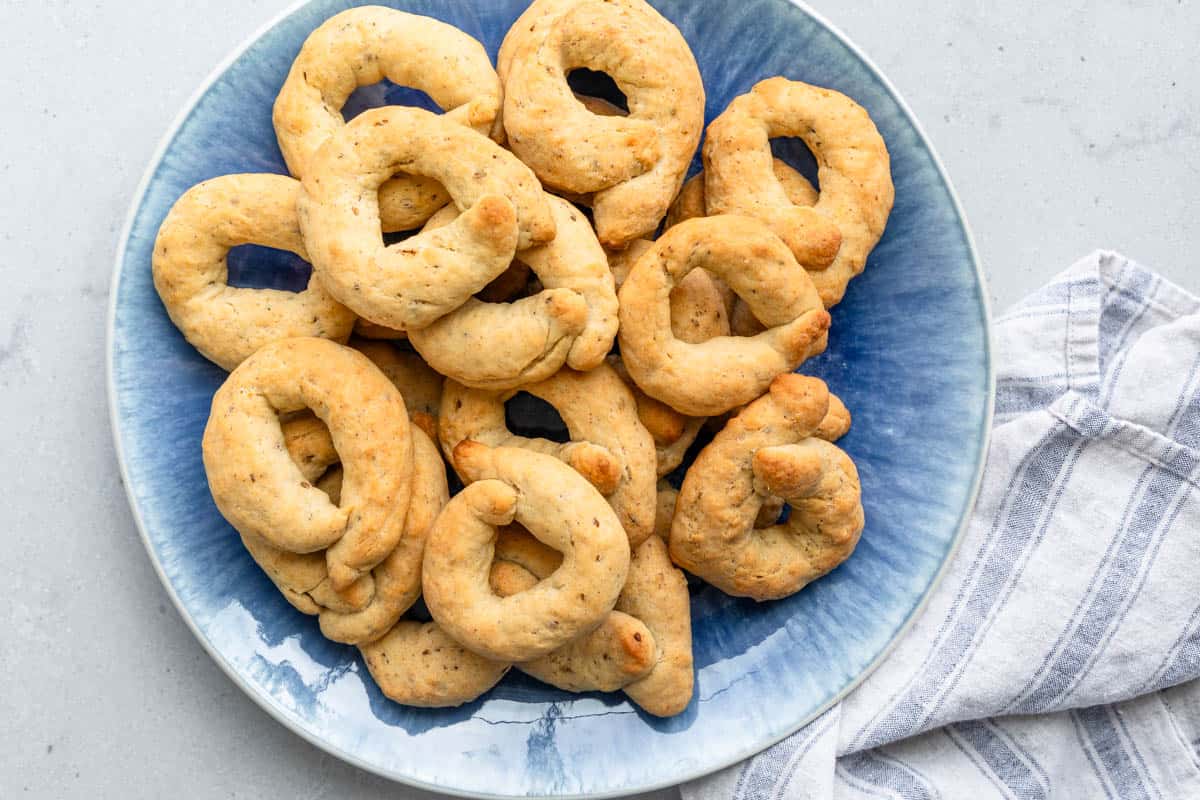
Whether you’re savoring the traditional taste of the Middle East or trying something new, I hope the unique combination of flavors and crunchy texture in these Lebanese anise cookies hit the spot. They are perfect for sharing with friends and family during gatherings or enjoying with a cozy cup of tea or coffee.
More Middle Eastern Dessert Recipes:
- How to Make Ashta
- Lebanese Rice Pudding
- Namoura (Semolina Cake)
- Atayef
- Ghraybeh Cookies
- Lebanese Baklava
- Sesame Tahini Cookies
- Homemade Lebanese Kanafa
If you try this feel good Lebanese Anise Cookies recipe or any other recipe on Feel Good Foodie, then don’t forget to rate the recipe and leave a comment below! It helps others who are thinking of making the recipe. We would love to hear about your experience making it. And if you snapped some shots, share it on Instagram so we can repost on Stories!

Lebanese Anise Cookies
Ingredients
- 3 cups all-purpose flour
- ½ cup granulated sugar
- 1 tablespoon anise seed yansoon
- 1 tablespoon ka’ak spice blend
- 1 teaspoon yeast
- ¼ teaspoon salt
- 1 cup unsalted butter melted
- ¾ cup milk warm
Instructions
- Preheat oven to 350°F and line 2 baking sheets with parchment paper.
- In a large bowl, whisk together the flour, sugar, anise seed, ka’ak spice blend, yeast and salt. Add the melted butter and milk, stir with a silicone spatula until well combined and continue to mix until the dough becomes soft and smooth. Cover the bowl and allow it to rest for 10 minutes.
- Using a medium spring-loaded cookie scoop, scoop about 1.5 tablespoons of the batter and set on the prepared baking sheets. Roll into a ball and then rub with both hands to form a long rope about 6 inches long. Squeeze both ends of the rope together to form a ring and set back on parchment paper.
- Bake in the preheated oven until slightly puffed, firm and golden brown, about 20 minutes
- Cool on the baking sheet for 5 minutes, then transfer to wire racks to cool completely.
Notes
Nutrition
Nutrition information provided is an estimate. It will vary based on cooking method and specific ingredients used.






Comments
Very talented sweet & quick, clean work too. My daughter kept bragging, mom you should see, until I saw. Good job, Habibty
Aww, so happy you and your daughter liked them! Thanks, Mona!
Do you grind the anise seeds for this recipe or leave as is?
I leave them as is!
An amazing recipe that is super simple to make and the taste is out of this world! My husband can’t stop eating them!
Thank you Yumna for sharing this fantastic cookie recipe!
Does adding Mahlab to the Ka’ak spices make sense?
Yes, I think you can add mahlab here! I usually just use it for making Maamoul, but I think it would taste good with these cookies too.
I would like to try making a vegan version of this recipe, what kind of milk is best as a substitute for regular milk ? Also can i use vegetable oil instead of butter ?
Thank you
Thanks for the recipe, I’m planning to try it with King Arthur Gluten free flour that’s 1:1 substitute. Where can one find the Ka’ak Spice blend?
Middle Eastern or specialty grocery stores carry ka’ak spice blend. You may also be able to find some in larger supermarkets with a well-stocked international section. If you’re unable to find it locally, you can try making your own with common spices such as cinnamon, ground anise, cloves, fennel, and nutmeg.
This was easy, tasty, and brought back many memories of Lebanon! Thank you for this recipe 🙏.
Love this, thanks for sharing!
Absolutely amazing!!
Thank you so much for all your recipes, you’ve made our lives a little brighter.
Ahh thank you so much!